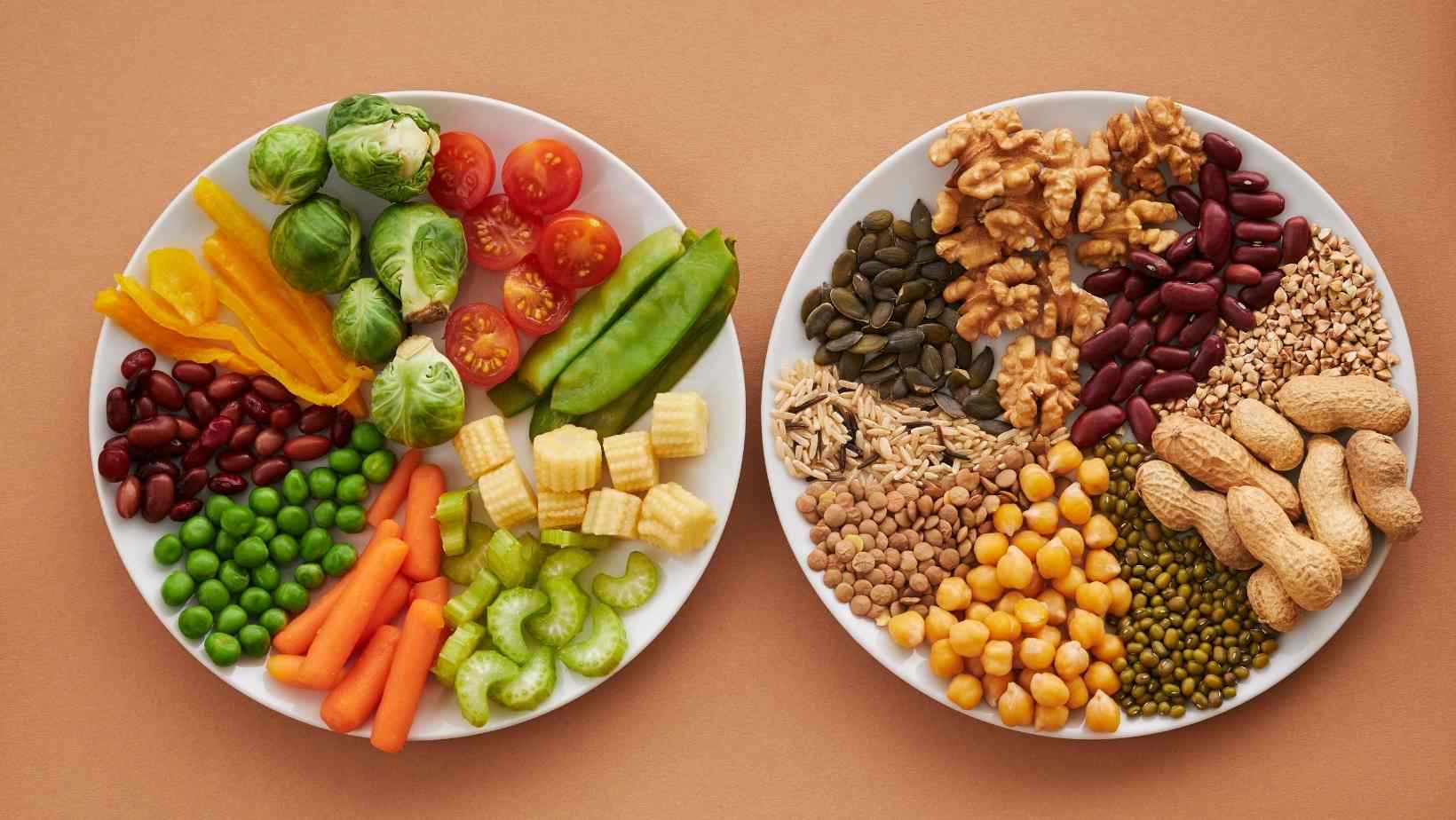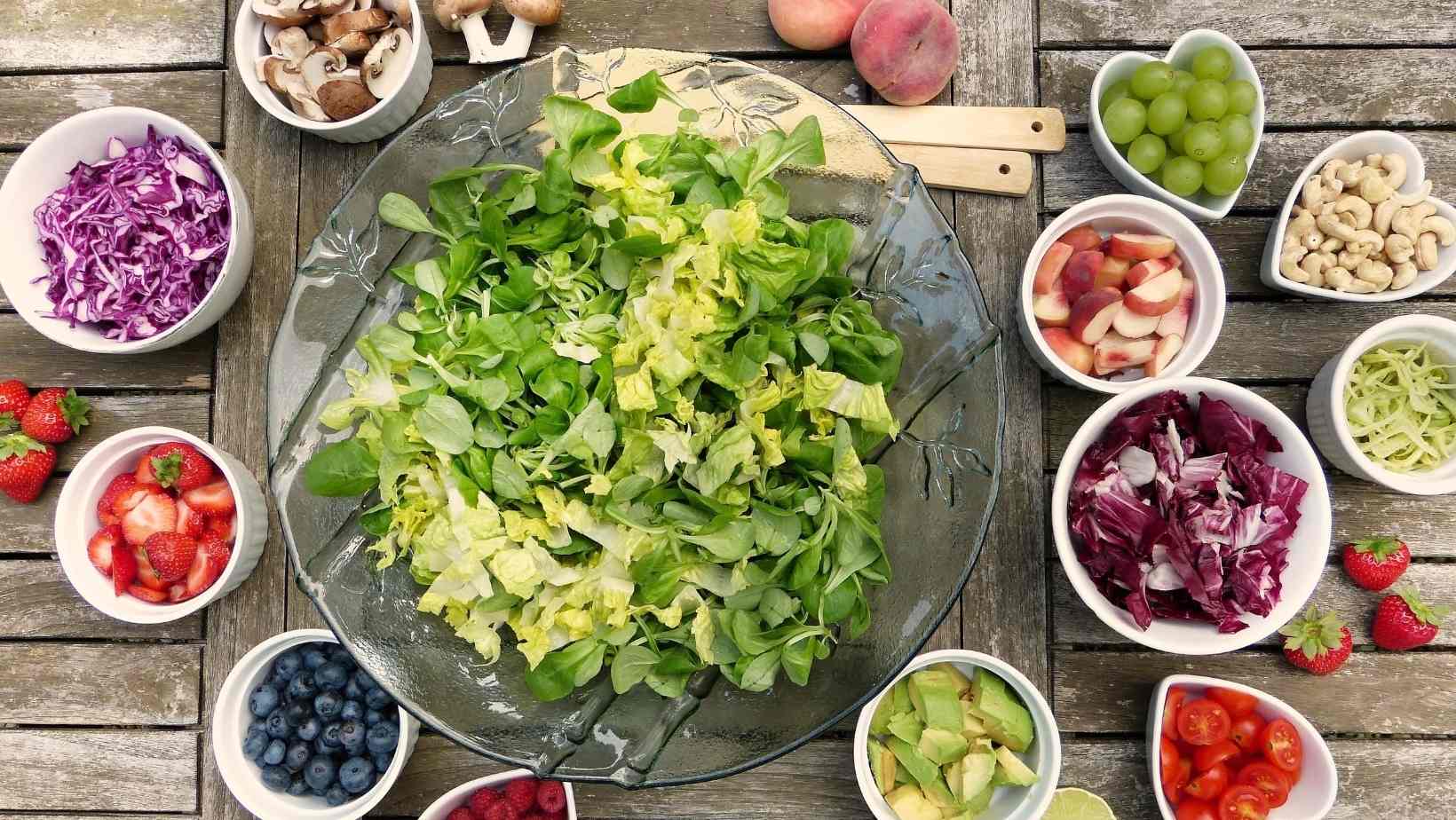Whatever your experience level with veganism, whether you've been vegan for a long time or are just getting started, achieving a well-balanced vegan diet is possible with careful preparation and a little knowledge. When followed properly, a vegan diet may provide a variety of health advantages. However, it is important to incorporate vital nutrients such as vitamins B12 and D, the bone-building mineral calcium, iron, zinc, and long-chain omega-3 fatty acids in your diet.
Wholefood vegan diets, which include fortified foods, are connected with greater health because they are high in dietary fibre, have a substantial supply of food sources rich in folate, vitamins C and E, as well as the minerals potassium and magnesium, and are low in saturated fat and cholesterol. Vegan diets tend to rank well in terms of health due to their high consumption of fruits and vegetables, low amounts of sodium (salt), and low levels of saturated fat.

The following are the top five health advantages of a vegan diet:
Jump to:
1. It may aid in weight reduction
Some people find that the desire to reduce a few pounds is sufficient motivation to switch to a plant-based diet. Comparing the nutritional content of a variety of diets in the United States revealed that a well-balanced vegan diet had the lowest total calorie consumption, a healthier lipid profile, and the greatest dietary fibre levels when compared to omnivore and lacto-ovo-vegetarian diets. A higher fibre diet results in more satiating meals, which reduces the likelihood of snacking and may allow you to better connect with your hunger signals in the long run.
Other research supports the idea that, on average, vegans are leaner and have a lower Body Mass Index than non-vegetarians (BMI). In one research, individuals who followed a low-fat vegan diet lost 4.2kg more than those who followed a control diet over the course of 18 weeks. A further advantage of a vegan diet is that it is naturally lower in calories, which eliminates the need for calorie management and portion control.
2. It is heart-healthy
Diets rich in vegan-friendly foods such as whole grains, beans, fruits and vegetables are linked to a decreased risk of heart disease and stroke.
The fact that male vegans seem to have even larger heart advantages than female vegans is particularly noteworthy; they have had significant decreases in cardiac risk variables such as blood pressure and cholesterol control.
3. It has the potential to help maintain blood sugar control
Those suffering from blood sugar imbalances may find that following a wholefood vegan diet is beneficial. A vegan diet has been shown to increase insulin sensitivity and decrease blood sugar levels, lowering the risk of acquiring type 2 diabetes in those who follow it.
Because a wholefood vegan diet, by its very nature, tends to include lots of low-glycemic-index (GI) foods that are high in dietary fibre, it has been shown to be beneficial. Include whole grains in your diet to help stabilise your blood sugar levels because the wholegrain helps delay digestion, serving as a physical barrier between you and your blood sugar levels.

Excessive grinding or processing of refined grains, such as those used to manufacture white varieties of bread, pasta, rice, and even 'wholemeal' goods, speeds up digestion and increases the rate at which carbohydrates are released from their carbohydrate content. If you want to reap the advantages of a vegan diet in terms of blood sugar control, be sure to incorporate lots of whole grains in your meals.
In addition, vegan diets tend to be lower in saturated fat and higher in phytonutrients from fruits and vegetables, making them more consistent with current dietary recommendations for those with diabetes. Speaking with your doctor or a nutritionist before making substantial changes to your dietary habits is recommended if you have been diagnosed with type 2 diabetes and/or are taking diabetic medication.
4. It has the potential to lower the risk of some malignancies
Over the next several decades, it is projected that the number of reported cancer cases would rise, with this growth likely to be fueled in part by variables such as obesity, inactivity, and food. Eating more plant-based meals, such as legumes, fruits, and vegetables, while reducing your diet of smoked or processed red meats, has been found to lower your chance of developing colon cancer.
Studies studying the influence of plant-based diets tend to reveal that a well-balanced vegan diet appears to provide the best result for all types of cancer at increased risk.
5. It has the potential to be useful for intestinal health
Microbes (bacteria, yeast, and viruses) that exist in your digestive system are collectively referred to as your gut microbiome. Our awareness of this critically essential microbial community is growing, and we now know that it has an impact on our thoughts, feelings, and overall health status. According to research, by altering the foods we consume, we may significantly improve the health of our gut microbiota in a very short period of time.
The consumption of a diversified plant-based diet has been shown to result in favourable and quick changes in our gut microbiome, boosting the growth of beneficial microorganisms and increasing the number of various kinds of microbes that dwell there. This is because by consuming a wide variety of plant-based meals that include a variety of fibres, we provide food for our gut bacteria, enabling them to grow and multiply.
More variety in food leads to more diversity in the microbiome, which leads to a greater ability to fight illness. This is essential since a reduction in species diversity has been linked to a variety of disease outcomes.




